Does White Chocolate Have Caffeine In It?
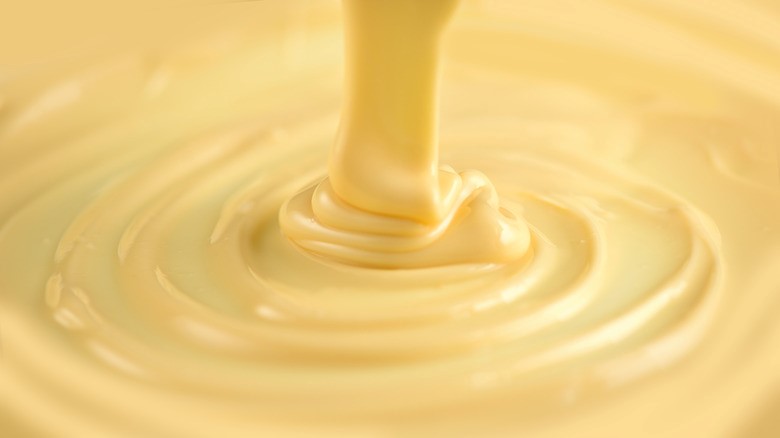
Ah, chocolates! Who doesn’t love them? In fact, the Latin name for chocolate is Theobroma Cacao meaning “food of the gods. These sweet treats are extracted from natural cocoa beans (also called cacao beans) that instantly brighten our mood but also add a spike to our energy levels. And it makes you wonder, what exactly does chocolate contain that makes us feel how we feel.
For one thing, chocolate stimulates the production of chemicals (serotonin) that create feelings of pleasure. And for another, it contains caffeine, but it varies depending on the type of chocolate. For instance, the darker the chocolate, the higher the caffeine content. So much for brown chocolate. What’s the deal with white chocolate? Does white chocolate have caffeine or not?
You see, caffeine is found in cocoa solids. The more cocoa the chocolate contains, the more caffeine will be present. However, white chocolate is made from cocoa butter, sugar, milk, and vanilla. Therefore, the possibility of the question, “do white chocolate have caffeine” is almost zero.
>> Dark Chocolate Increases Testosterone >>
What Exactly Is White Chocolate?
White chocolate is made from cocoa butter, milk products, vanilla flavoring, and sugar. Technically, white chocolate is chocolate because its main ingredient is cocoa butter, the fat from the cacao beans. White chocolate is considered chocolate despite its different color and flavor because its source is similar to other chocolate family members.
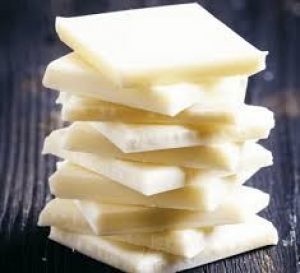
Can White Chocolate Be Considered Real Chocolate?
When discussing whether white chocolate can be considered real chocolate, there are two frameworks: the legal definition of chocolate and how the product tastes.
By legal standards, any product is considered real chocolate. It contains at least 20% cocoa butter (the fatty substance from cocoa beans) and 3.5% milk solids, usually in powdered milk and additives.
But when it comes to taste, it can be hard to consider white chocolate to be true chocolate since it lacks the actual cocoa bean that most of us associate with the robust and varied flavor notes of chocolate.
Typically, when manufacturers make chocolate, they roast and grind cocoa beans to create chocolate liquor, a blend of cocoa butter and cocoa fiber sourced from beans. This liquor is then processed to become cocoa solids. Cocoa fibers are removed from the liquor to remain cocoa butter for white chocolate. After that, the butter is blended with milk, sugar, vanilla, and other ingredients.
And that’s why white chocolate doesn’t taste like chocolate, but a buttery, milky pleasure with a “melting in the mouth” property.
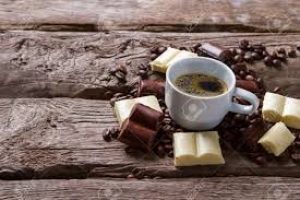
Does White Chocolate Have Caffeine?
When cacao beans are pressed, cocoa butter is separated from the cocoa solids, which contain caffeine. However, since no process is perfect, there is a possibility of a negligible amount of caffeine being present in the cocoa butter, resulting in the white chocolate having little to no zero caffeine. It can be considered caffeine-free.
And while you may experience an energy rush after eating white chocolate, it isn’t the result of caffeine. But instead, the high amount of sugar that white chocolate contains. It is typically the “first ingredient” in white chocolate.
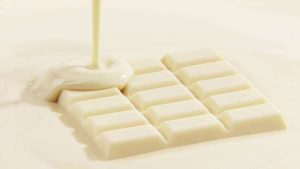
What Effects Does White Chocolate Have On Us?
Whether dark or white, no chocolate is entirely devoid of caffeine. And whether or not the caffeine in chocolate will have any effect depends solely on you. for instance, improving your mood will be the most notable effect of white chocolate. However, that doesn’t mean that it would be the only one you can expect. Caffeine-free chocolate can affect you in multiple ways, such as:
- Relieves Stress – Our body does not function effectively under stressful conditions. White chocolate promotes the release of dopamine in the brain, and this substance has a positive impact on both mental and physical health
- Reduces our vulnerability to heart diseases – When consumed moderately, white (and dark) chocolate is associated with improving cardiovascular health.
- Assists in lowering blood pressure – If you’ve ever experienced a sudden decline in your blood sugar levels, the sugar in white chocolate provides an easy solution for people experiencing a glucose deficiency in the bloodstream.
However, it’s worth noting that while milk and white chocolate contain less caffeine than dark, it doesn’t make them healthier options. Both white and milk chocolate tends to be higher in added sugars and unhealthy fats, which can be dangerous for your teeth, weight, and sugar levels. Moreover, having too much fat in your bloodstream can cause high blood pressure and affect your overall health.
>> Apps Like Omegle >>
Does White Chocolate Have Caffeine? Is It Bad For You?
It’s pretty difficult for you to find someone who doesn’t like the well-loved treat as chocolates. Besides being delicious, it’s also a good source of nutrients when eaten in moderation.
Talking about health benefits, dark chocolate generally enjoys being the top dog. Studies have been conducted that associate dark chocolate with improved blood flow, cognitive functions, and heart health.
But, labeling white chocolate as “bad for you” wouldn’t be right. I mean, it’s perfectly edible. It usually contains milk, which may cause reactions in people who have a problem digesting or are allergic to milk. It also contains sugar, which might concern people with diabetes. Otherwise, it contains vanilla and cocoa butter.
It’s a high-calorie snack with little nutritional value, so it’s not ideal to consume large quantities, especially if it’s replacing healthier food options. However, assuming that you aren’t allergic or making it a majority of your diet, it’s not that big of a deal.
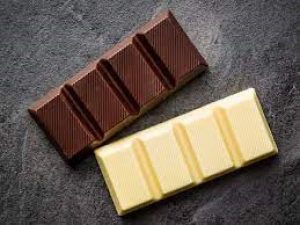
White Vs. Dark Chocolate: How Do They Differ?
Now, to compile all the above-given information, let us take a brief overview by highlighting some of the basic differences between white and dark chocolate.
| Dark Chocolate | White Chocolate |
|
|
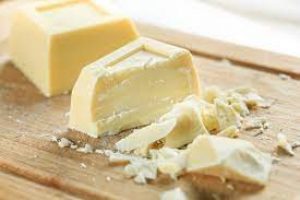
What’s The Point Of White Chocolate?
To summarize and answer your question, “does white chocolate have caffeine,” the answer is yes, however, only in negligible/trace amounts. And while it’s smoother and buttery than dark chocolate, it doesn’t provide many health benefits, so keep that in mind before indulging in that cocoa butter-filled delicacy.
>> PlayStation Party Chat on PC >>








